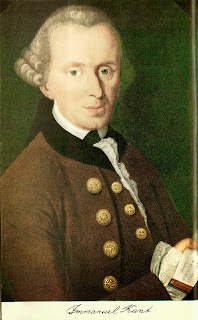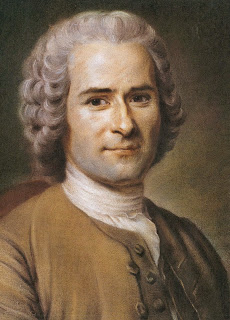 |
| http://static.ddmcdn.com/gif/the-enlightenment-1.jpg |
 |
| http://upload.wikimedia.org/wikipedia/commons/9/90/Friedrich_Zweite_Alt.jpg |
Frederick (II) the Great came to power in Prussia in 1740. The first thing Frederick accomplished was invade and conquer the German lands of the Habsburgs, Silesia. With this step Frederick doubled the population of Prussia. Frederick was able to keep this land with the help of Peter III during the 7 Years' War. Frederick brought Enlightenment to the people as a way to strengthen his state. He allowed his subjects the freedom of philosophical and religious tolerance (except Judaism, of course). He improved schools and allowed them to publish their findings in order to continue to educate people. In his government, Frederick created a more honest legal system and abolished the torturing of prisoners. Next Frederick created the reconstruction of agriculture after the 7 Years' War. Though Frederick did not like the idea of serfdom, he needed to use it to support his country.
Frederick truly differed from past rulers when he "justified monarchy in terms of practical results and said nothing of the divine right of kings." This embodies the enlightened belief of the practical use of knowledge to govern opposed to the blind faith of a divine ruler to govern.
 |
| http://www.nndb.com/people/575/000078341/catherine-the-great-1-sized.jpg |
Catherine the Great of Russia came to power in 1762 after overthrowing her husband Peter III. Catherine brought the Enlightened period to backward Russia by "westernization". In this process Catherine brought architects and sculptors to Russia from Western Europe. Her next step was a domestic reform where she improved education, strengthen local government, and abolished torture(very similar to Frederick the Great). She allowed a little religious toleration. She also condemned the idea of serfdom but because of a peasant rebellion lead by Emelian Pugachev, Catherine needed the help of the nobility to control the peasants.
 |
| http://www.biography.com/imported/images/Biography/Images/Profiles/T/Maria-Theresa-9398965-1-402.jpg |
Maria Theresa came to power in Austria in 1740. The War of the Austrian Succession included the loss of Silesia to Prussia leading to reforms. She believed that reforms were the path to a stronger state. Maria first attacked the power of the papacy in politics by limiting it. Next she improved her government by making a more centralized bureaucracy and created a new tax system where even the nobles were taxed. Maria truly differed from other rulers of her time by reducing the power of lords over serfs. Her son, Joseph II gave religious tolerance and rights to Protestants and Jews. Following in his mothers path, Joseph II abolished serfdom in Austria in 1781 and decreed that all peasant labor obligations be converted into cash payments. Sadly these measures were rejected by nobility and the peasants causing an uproar after Joseph's untimely death. His brother Leopold II had to demolish Joseph's edicts.
Another name for an enlightened absolutist is a benevolent dictator. But are they the same thing? An enlightened absolutist is someone who uses the ideas of the enlightenment to better their government and kingdom while a benevolent dictator is someone who helps their populace with the intent to make their life better. I believe that the enlightened absolutists were not the same as benevolent dictators. The rulers of Prussia, Russia, and Austria wanted to improve their country in every way but knew in order to do so they needed to adapt to the times and use the technique of knowledge to efficiently run a kingdom. They did not have the intent of improving the lives of the people with their inability to abolish the oppressive serfdom. In the end, many of the absolutists were able to improve their countries with intelligence, hard work, and enlightenment.















